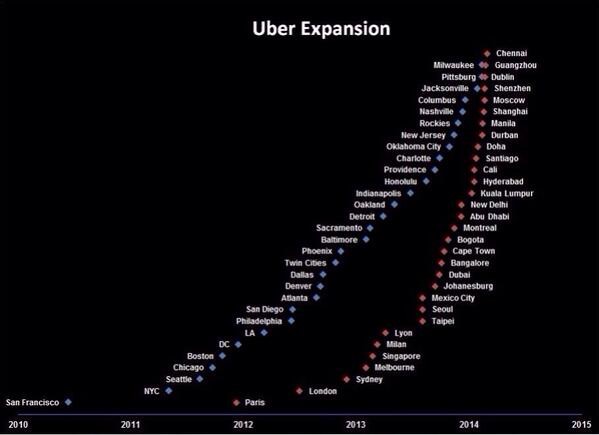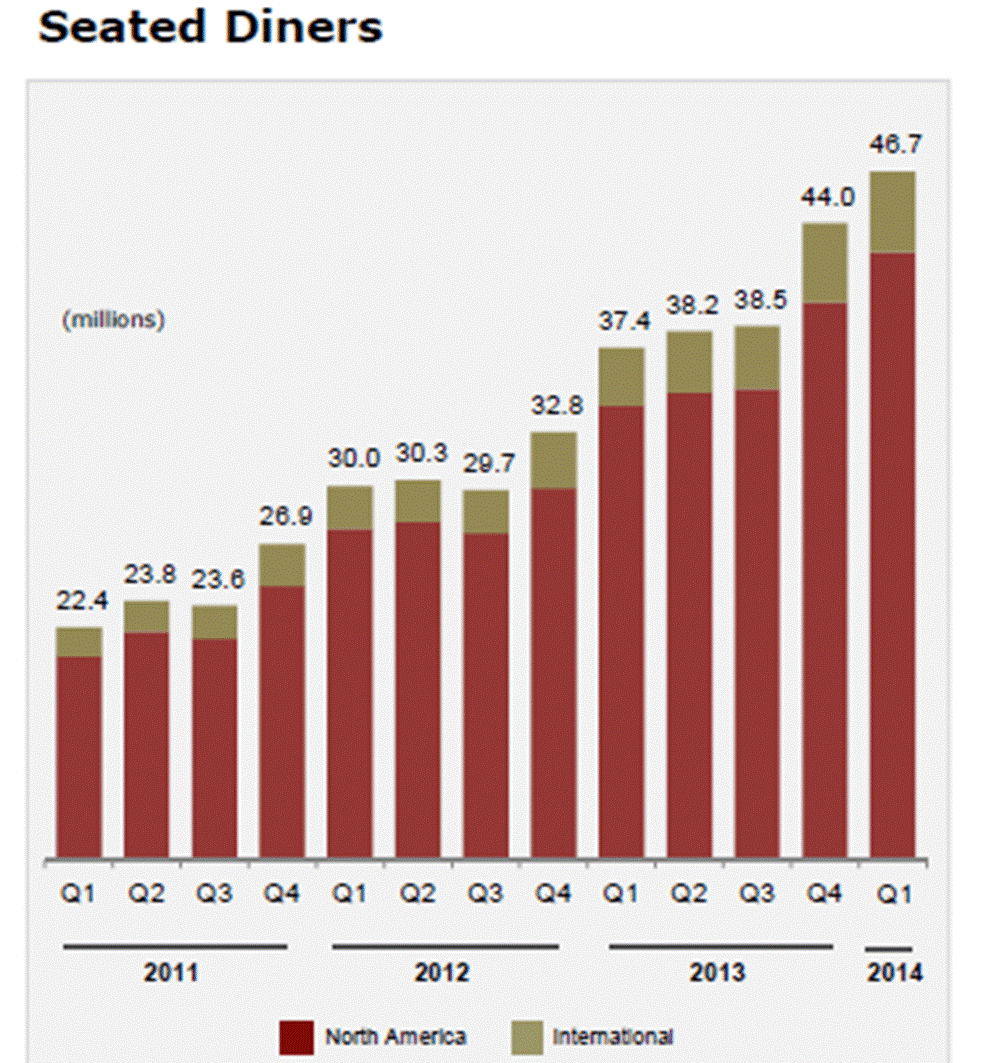Imagine a society where you would barely talk to anyone during your day. You would only write to your spouse, friends and co-workers via text messaging or emails. You would order a cab, your food and make dinner reservations using your smartphone. You would almost never need to go to a bank, instead depositing checks and paying your bills online.
There’s no need to imagine this. This is how millions of people are living in 2014.
When smartphones started invading our lives 7 years ago, we couldn’t help but feel overwhelmed by the prospect of always being connected to others through an extraordinary new technology. Now that we’ve almost adjusted to it, we’re actually using this technology to filter oral communications, allowing ourselves to shut down and to keep interaction with others to a bare minimum when we feel like it.
Related: The New Workplace Trend: Smartphone Mini-Vacations
WHY THIS MATTERS
• Direct to home services can be scammed. Businesses are taking precautions to identify the people who deliver the services or products to your home.
• Americans can lose their social skills along with their confidence in dealing with other people
• Businesses can thrive if they have a unique service and deliver it flawlessly.
The growing trend of doing the most mundane everyday tasks online, especially on our smartphones, and of avoiding the spoken word, has become the new luxury in our lives, according to The Atlantic. Instead of ordering food by phone, for example, hungry people come home from work and log onto Seamless or other fast-food ordering. When your food arrives, a simple thank you is all that’s required, since you already included the tip.
If you dread the line at the deli counter of your supermarket, you can also place your deli and sub orders on Publix’s website or by using the supermarket app. Hate the officious tone of the maître d’ at your favorite restaurant? Make the reservation through OpenTable. And Uber has become the go-to-app when you’re stranded somewhere and in desperate need of a cab. These are only a few examples of new online services that have sprouted in recent years.
“We see a flurry of apps that give options to people,” said Pamela Rutledge, director of the Media Psychology Research Center. “Some of them are very practical and have value.”

Research confirms that the Internet, and particularly mobile technology, has become a vital tool to help us navigate our everyday lives:
- Sixty-nine percent of Americans order food online using a mobile device, according to a study released by the Interactive Bureau of Advertising and Viggle at the beginning of the year.
- Thirty-three percent of all mobile phone users and 51 percent of smartphone users said they banked on their phone in 2013, up from 28 percent and 48 percent in 2012, according to the Federal Reserve Board.
The trend is even more evident among millennials:
- Eighty-eight percent of U.S. Internet users ages 18 to 34 have used online banking to pay bills, make deposits and withdraw money, and half of those use their smartphone to do so, according to a February study by TD Bank.
Related: Walmart’s Latest Move into Banking a Controversial Win for Consumers
Even in the workplace, it’s not uncommon to use instant messaging or email to communicate with a co-worker sitting a few feet away from us rather than simply stand up and ask a question out loud.
This trend is closely linked to the fact that after decades of suburbanization, Americans are increasingly moving back to cities, where life schedules are often hectic and the assistance of the Internet and of a smartphone can help manage a busy stressful life.

“Many don't want to live in cities, but feel as though they have no choice because that's where the jobs are,” said Danah Boyd, founder of Data & Society Research Institute. “Cities can be very overwhelming for many people. It's not uncommon for people to try to achieve cognitive space.”
The reasons why people opt to communicate and do daily tasks online rather than by talking vary.
It’s More Convenient. Generally speaking, our society has become more interconnected than it was a couple of decades ago, whether at the office, at home or in our social lives. As a result, since we have become a nation of multitaskers, we have to find the most efficient way to communicate, and in some instances, like ordering food or a cab, it’s a better use of our time to text or to use an app than to dial someone.
The convenience of ordering pizza with your smartphone is obvious. To order pizza the traditional way, you have to dial the number of your pizza place, which may be busy, so you may have to call back later. You could also be placed on hold. Then you run the risk that they get your order wrong or don’t catch your exact address or your credit card number.
Related: Should You Fear an All-Powerful Amazon.com?
“Unless you have questions or you know the person picking up the phone, there’s no reason to call,” said Rutledge. “You get your food faster if you order online.” The same goes for online shopping. Buying pretty much anything through sites such as Amazon.com has become much easier than going to a store, which may not always carry what you’re looking for.
We Want to Be Left Alone. A more interconnected life is also resulting in a strong desire to be left alone. Our need for isolation is obvious in the way people are choosing to live. More than one in four households had just a single person in 2012, versus one in six in 1970, according to Census Bureau findings, a trend that New York University sociology professor Eric Klinenberg captured in his book Going Solo: The Extraordinary Rise and Surprising Appeal of Living Alone.
As more people are living alone, the need for convenient non-intrusive communication means has increased. In a 2012 New York Times article based on his book, Klinenberg wrote that “open communications systems make modern autonomy more appealing; they give us the capacity to live alone but to engage with others when and how we want to and on our own terms.”
This is true of baby boomers, who didn’t grow up with so much technology at the tips of their fingers, but have learned to use it to take breaks from socializing in person.
“In the 1970s, baby boomers expressed their desire for isolation by going to ashrams or silent retreats, by meditating or adopting other Eastern philosophy principles,” said Neil Howe, founding partner and president at Lifecourse Associates, a consulting company focused on generational research. “Nowadays, they turn they cell phone off or limit talking on cell phones by using technology, allowing them to choose how they communicate.”
Favoring the convenience of using a smartphone over the spoken word is also particularly popular with millennials, those under 34 years old but older than 18 years old, for whom it’s natural to be watching a movie while at the same time texting a friend and ordering a pizza.
Related: 4 Reasons You Won’t Really Cut the Cable Cord (Yet)
“For millennials, it’s not to be alone, but it’s because they are so engaged that they have to make decisions,” said Howe. “It’s just multitasking. It’s to increase their bandwidth.”
Regardless of why Americans are increasingly replacing face-to-face interaction with online communications, the switch is already happening and is having longlasting consequences for all.
Consumers Need to Streamline. Social connectivity has become an extension of our life, and rather than feeling overwhelmed by it, consumers should pick and choose which app and online service are important to them. “We have to think about our goal because we have choices we never had before,” said Rutledge. “We should view in a larger way the level of connectivity that supports our life on a daily basis and make some judgment rather than being dictated by the technology. That’s where education and guidance are important.”
Top Reads from The Fiscal Times:




